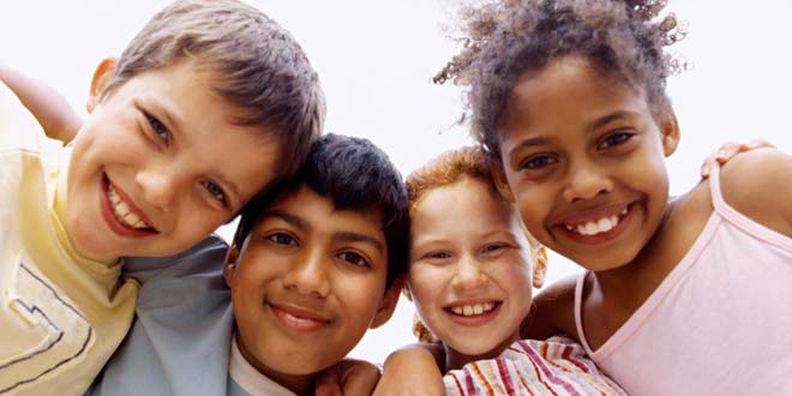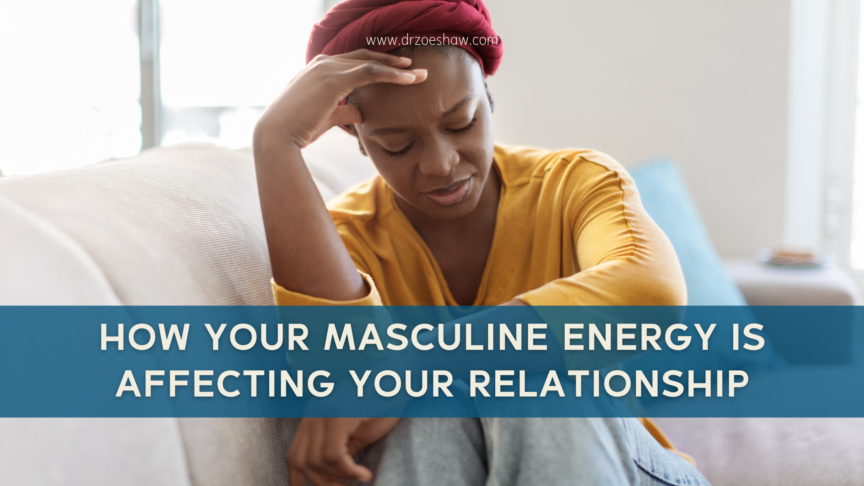Why does it feel so uncomfortable to talk about race and racism in this country? Deep down in our gut we know that something just isn’t right and that makes us squirm. Humans strive for internal consistency and when it’s not there, we become uncomfortable. A part of our mind knows that we are all really one family- the human race. The other part knows that we harbor some racism, or stereotypes or discriminatory thoughts. Yes, we do. This makes us uncomfortable. When we become uncomfortable, we actively avoid situations and information likely to increase it. So, it’s normal to feel that way. I invite you to feel it now and keep reading anyway.
There is something called multigenerational transmission process which just means that we unconsciously pass things down in families through the generations. Some things that get passed down are really great, some are really bad. We got dealt a really bad multigenerational hand of racism, fear, confusion and discrimination. And it is NOT our fault! We didn’t ask for this, but it is 100% our job to fix it! How did we become this way? We were taught. How do we stop it? Teach something different. But wait, you say, I AM teaching my child differently. But are you??? Are you really? We all know the right words to say. We know it is important to say “Everyone is equal. Everyone is the same. Color is only skin deep. All lives matter. Race doesn’t matter.” But what do you REALLY tell them- not with your words, but with your actions and body language? Are we unconsciously embedding discriminatory thoughts and beliefs in our children through our body language, just as was done to us?
 Most of us know that the majority of communication between humans is actually nonverbal (that explains those misconstrued text messages and why emoji’s are so important). In fact, our non verbal communication is 12.5 more powerful in communicating interpersonal attitudes and feelings than our verbal communication (12.5 x!!!). I’m talking today about the non-verbal messages we express to our children about who we value and who we don’t and who is to be feared and who isn’t. I am talking about the times when we give a fake smile, or give an approving or disapproving nod. I am talking about the jokes at which we laugh and the little facial expressions we make, the raised eyebrow or the curious or suspicious stare. I am thinking of when someone walks on the elevator and the doors close and we hug our children a little closer or when we are stopped at a stoplight and we reach over to lock all the doors when someone (we deem a threat) walks near our car. What non-verbal messages are we sending to our children about which people are which? I wish I could say that I am not guilty of any of these behaviors, but sadly, I am. I, too, of course, am a product of my society. Think of the strongest held rules or norms in your family. It is possible that your parents never actually spoke them to you, but believe me, everyone knew! We all know that Uncle whoever is crazy and stupid. Nobody ever told you, but we know because everyone ignores him when he talks. People roll their eyes when he interjects. No one considers him as they would the other adults. No one ever had to say a word, we just know. And guess what? You think of him in the same way, even though you may have no idea why. You believe what you were non verbally taught.
Most of us know that the majority of communication between humans is actually nonverbal (that explains those misconstrued text messages and why emoji’s are so important). In fact, our non verbal communication is 12.5 more powerful in communicating interpersonal attitudes and feelings than our verbal communication (12.5 x!!!). I’m talking today about the non-verbal messages we express to our children about who we value and who we don’t and who is to be feared and who isn’t. I am talking about the times when we give a fake smile, or give an approving or disapproving nod. I am talking about the jokes at which we laugh and the little facial expressions we make, the raised eyebrow or the curious or suspicious stare. I am thinking of when someone walks on the elevator and the doors close and we hug our children a little closer or when we are stopped at a stoplight and we reach over to lock all the doors when someone (we deem a threat) walks near our car. What non-verbal messages are we sending to our children about which people are which? I wish I could say that I am not guilty of any of these behaviors, but sadly, I am. I, too, of course, am a product of my society. Think of the strongest held rules or norms in your family. It is possible that your parents never actually spoke them to you, but believe me, everyone knew! We all know that Uncle whoever is crazy and stupid. Nobody ever told you, but we know because everyone ignores him when he talks. People roll their eyes when he interjects. No one considers him as they would the other adults. No one ever had to say a word, we just know. And guess what? You think of him in the same way, even though you may have no idea why. You believe what you were non verbally taught.
Children start to notice differences in skin color and facial features as early as 2 yrs old, depending on how astute they are. But here is the kicker- humans understand and respond to non verbal communication beginning at birth!! Beforehand, really. Our brains are wired to understand our non verbal communication! The research in neonatal non verbal communication is amazing!! On top of that, children see all and hear all. I wish they didn’t (OMG!!), but they do. They are the mirrors of our souls and they will speak the truth- until of course, they learn not to.
I remember pushing my son in the grocery store when he was 2 years old. A little boy in a cart next to us pointed to my son and said, “he’s black.” It wasn’t his words (benign by themselves) but it was the disdain with which he spoke them and the sneer on that child’s face that caught the attention of my son. The mother smiled apologetically at me and I smiled politely back, trying to push away the pain that was tightly gripping my heart as I noticed my son’s reaction. The mother admonished her son, as she should have, and commented that my son’s skin was beautiful. But, somewhere, her son had already learned different- probably from her. For a few weeks after, my son periodically asked me, “Why did that boy say that I’m black?” I knew that my son wasn’t just asking why. He had heard himself described in that way before. With his limited vocabulary, he was really asking, “why did he say it that way?” I didn’t really know how to respond. How do you explain to a 2 yr old that some people think he is not as good as they are, that he is less than because of the color of his skin, that he doesn’t have as much value as others whose skin is lighter? So, I made up some trite answer about the boy noticing how different his beautiful brown skin was from his. My first lie as a parent and he knew it. I could tell he didn’t buy it. What he wanted to know was what was wrong with him? Eventually, he stopped asking. Some may say that it went away, but I know that it did not. Instead, that message got buried deep in his psyche- He was learning already at 2 yrs old, the societal belief that somehow he is less than- not from the words that were said, but from the non verbal communication that we humans are wired to decipher and understand since birth. And this, my friends, is a big part of our racism problem in this society- not just white people discriminating against non whites, but sadly also for the self hatred in the Black community as well, that spawns the black on black crimes that are often noted (mostly only when there is a white on black crime). See, when you are taught from a young age that you are less than, it is just a matter of time before you start believing it, acting on it and unknowingly perpetuating it in your own family. And not every young child is blessed ( as my son is and many other black people are) to have someone take the time to invest enough of the opposite viewpoint (the truth about their value) into their minds. Our media certainly isn’t doing that!
That little boy whose body language expressed so much disdain was only repeating what he learned from society. But he is all grown up now. He is carrying the torch. And he probably knows the right words to say now, but what does he really believe? It is not his fault, but we do have to fix it. Humans quickly learn to create lies with our words, but our bodies never do. Our bodies speak the truth about what we really feel and believe (even when we don’t know it ourselves) and we are always communicating that to our children. In the 21st century, we all know what we should say. But please, because I know you care, check yourself and make sure that your body language matches what you teach your children about race!
Written with Love to all!!
Mehrabian, A. (1981) Silent messages: Implicit communication of emotions and attitudes. Belmont, CA: Wadsworth (currently distributed by Albert Mehrabian, email: am@kaaj.com)
The Bowen Center for the Study of the Family (2016) http://www.thebowencenter.org/theory/eight-concepts/multigenerational-transmission-process/




